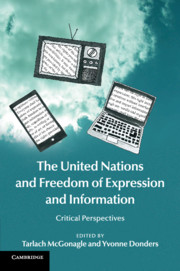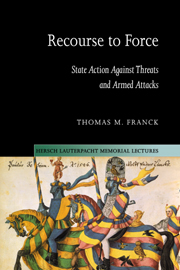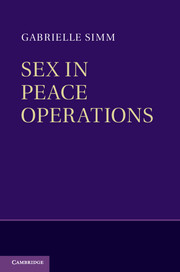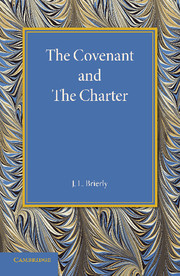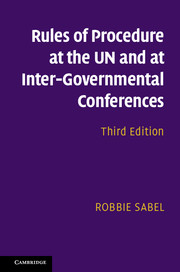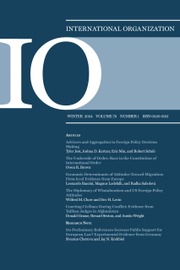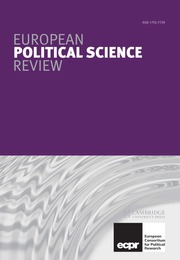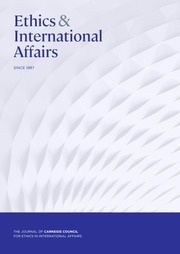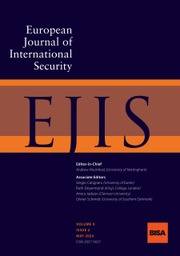Between Forbearance and Audacity
The European Court of Human Rights and the Norm against Torture
£95.00
Part of Studies on International Courts and Tribunals
- Author: Ezgi Yildiz, California State University, Long Beach
- Date Published: November 2023
- availability: Available
- format: Hardback
- isbn: 9781009100045
£
95.00
Hardback
Other available formats:
eBook
Looking for an inspection copy?
This title is not currently available on inspection
-
When international courts are given sweeping powers, why would they ever refuse to use them? The book explains how and when courts employ strategies for institutional survival and resilience: forbearance and audacity, which help them adjust their sovereignty costs to pre-empt and mitigate backlash and political pushback. By systematically analysing almost 2,300 judgements from the European Court of Human Rights from 1967–2016, Ezgi Yildiz traces how these strategies shaped the norm against torture and inhumane or degrading treatment. With expert interviews and a nuanced combination of social science and legal methods, Yildiz innovatively demonstrates what the norm entails, and when and how its contents changed over time. Exploring issues central to public international law and international relations, this interdisciplinary study makes a timely intervention in the debate on international courts, international norms, and legal change. This book is available as Open Access on Cambridge Core.
Read more- Available as Open Access on Cambridge Core
- Draws from international relations and international law to explain why international courts choose not to use their power to maximum effect
- Traces the development of the norm against torture and inhumane or degrading treatment by systematically analysing almost 2,300 judgments from the European Court of Human Rights, 1967–2016
- Combines historical and social science methods with legal analysis to present an accessible, nuanced study
Reviews & endorsements
'Between Forbearance and Audacity meticulously explains how and why the European Court of Human Rights has expanded the prohibition on torture from a narrow negative interpretation that bans government agents from using torture during interrogations to a broader understanding that includes positive government obligations to prevent torture and protect victims in multiple contexts, such as domestic abuse and medical settings. However, the Court has not always followed an expansive approach. Using in depth interviews and a systematic content analysis, Yildiz demonstrates that pushback from Western European governments has at times curtailed the Court, such as on cases involving refugees. Deeply rooted in both law and political science, this is a masterful book that should be of interest to those interested in human rights, international courts, and the development of international legal norms.' Erik Voeten, Peter F. Krogh Professor of Geopolitics and Justice in World Affairs, Edmund E. Walsh School of Foreign Service and Government Department, Georgetown University
See more reviews'Ezgi Yildiz's carefully researched book is the crucial text on changing norms of torture and inhumane and degrading treatment. But it also offers the most impressive evidence to date of how human rights can evolve through the audacious interpretations of a court.' Kathryn Sikkink, Ryan Family Professor, Kennedy School of Government, Harvard University
'Between Forbearance and Audacity tells the story of how the European Court of Human Rights has developed the norm against torture over the past five decades. It shows how courts are always situated in history and that the development of the law necessarily has to be tailored to the constraints that courts face at given moments of time. This is neither an optimistic nor pessimistic account of the European Court of Human Rights; it is realistic account that considers all the complexity of making torture illegal in Europe.' Mikael Rask Madsen, Professor and Director of iCourts, Faculty of Law, University of Copenhagen
'Between Forbearance and Audacity is an insightful and ambitious analysis of how the European Court of Human Rights has transformed the norm against torture and renegotiated its own position in the process. This book brings together rich empirical analyses and a novel conceptual framework to advance the current thinking about how human rights courts work and how they respond to pressure from member states and beyond. This is a must-read for anyone interested in understanding how international human rights courts shape, and are shaped by, evolving human rights norms.' Courtney Hillebrecht, Professor of Political Science, University of Nebraska-Lincoln
'In Between Forbearance and Audacity, Ezgi Yildiz chronicles and explains an international legal revolution, in which the European Court of Human Rights expanded the meaning of torture and the responsibility of states to prevent it. Drawing on a range of quantitative, qualitative, and interpretive methods, Yildiz provides the definitive account of the transformation of the anti-torture law in Europe. Essential reading for political scientists, lawyers, and anyone who wants to understand the conditions for the protection of human rights around the world.' Mark Pollack, Professor of Political Science and Law, Temple University
Customer reviews
Not yet reviewed
Be the first to review
Review was not posted due to profanity
×Product details
- Date Published: November 2023
- format: Hardback
- isbn: 9781009100045
- length: 160 pages
- dimensions: 235 x 159 x 20 mm
- weight: 0.53kg
- availability: Available
Table of Contents
1. The court redefines torture in Europe
2. The conditions for audacity
3. Inside the court: its trade-offs and zone of discretion
4. Mapping out norm change
5. From compromise to absolutism? Gradual transformation under the old court's watch
6. New court, new thresholds, new obligations
7. Change unopposed: the court's embrace of positive obligations
8. Legal change in times of backlash
9. Conclusion
10. Bibliography.-
General Resources
Find resources associated with this title
Type Name Unlocked * Format Size Showing of
This title is supported by one or more locked resources. Access to locked resources is granted exclusively by Cambridge University Press to lecturers whose faculty status has been verified. To gain access to locked resources, lecturers should sign in to or register for a Cambridge user account.
Please use locked resources responsibly and exercise your professional discretion when choosing how you share these materials with your students. Other lecturers may wish to use locked resources for assessment purposes and their usefulness is undermined when the source files (for example, solution manuals or test banks) are shared online or via social networks.
Supplementary resources are subject to copyright. Lecturers are permitted to view, print or download these resources for use in their teaching, but may not change them or use them for commercial gain.
If you are having problems accessing these resources please contact [email protected].
Sorry, this resource is locked
Please register or sign in to request access. If you are having problems accessing these resources please email [email protected]
Register Sign in» Proceed
You are now leaving the Cambridge University Press website. Your eBook purchase and download will be completed by our partner www.ebooks.com. Please see the permission section of the www.ebooks.com catalogue page for details of the print & copy limits on our eBooks.
Continue ×Are you sure you want to delete your account?
This cannot be undone.
Thank you for your feedback which will help us improve our service.
If you requested a response, we will make sure to get back to you shortly.
×

